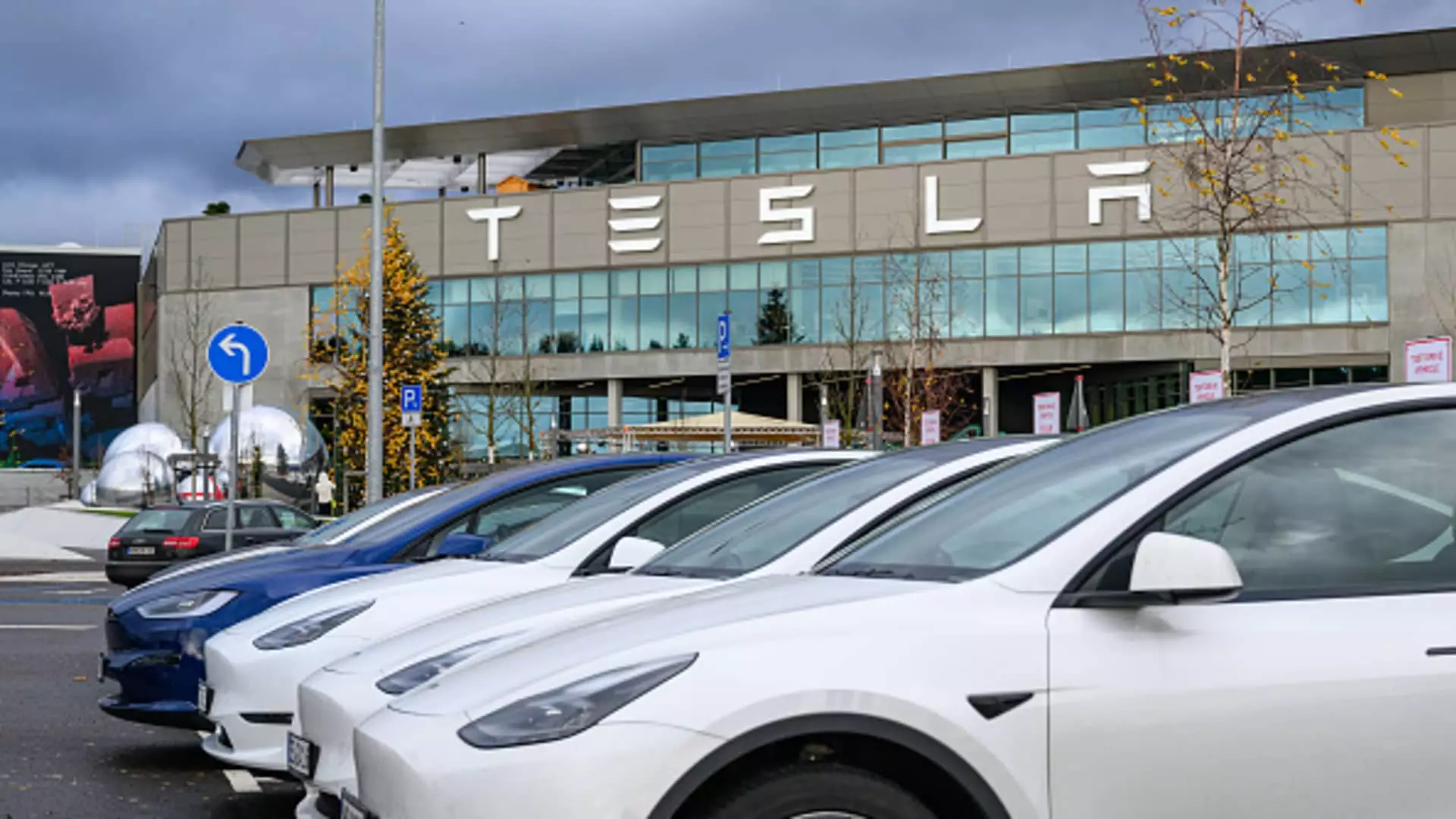In a dramatic display of the high-stakes nature of the stock market, Tesla Inc. experienced a tumultuous trading week, culminating on Friday with a modest return to profitability. After early morning losses, the electric vehicle titan saw its shares recover, marking a 0.7% increase by 11:10 a.m. ET. This recovery was notable especially considering that Tesla shares had plunged by as much as 6% in premarket trading sessions earlier that day. A stark warning signal flashed on Wednesday when the company registered an 8% decline, signifying one of its most challenging days in recent memory—a day that resonated strongly with investors reflecting on market events prior to Donald Trump’s presidential election victory.
Despite the recovery noted on Friday, the overall trajectory of Tesla’s stock throughout the week remained downward, following the trend of uncertainty that has plagued biotechnology and tech equities. The ramifications of Trump’s victory had previously sent the stock soaring by an impressive 72% since the night of the November 5 elections, driven largely by speculation that Tesla could reap significant benefits from its CEO, Elon Musk’s connections to the new administration.
Elon Musk’s close ties to Trump appear to have contributed significantly to the positioning of Tesla’s market shares. Following the election, Musk was appointed to co-lead a presidential advisory commission known as the Department of Government Efficiency, or “DOGE,” a title that amusingly mirrors the well-known cryptocurrency meme. The surge in interest and value of Dogecoin synchronistically coincided with the news of the commission, illustrating the quirky yet often integrated nature of politics and finance in 2020.
Musk, having poured approximately $277 million into Trump’s campaign, stands as a key benefactor who has not only navigated the stock market but helped shape its narrative. Despite these dynamics, reports surfaced indicating that Trump’s transition team was contemplating the introduction of a federal regulatory framework for autonomous vehicles—an initiative that could enhance Tesla’s prospects dramatically. As Tesla builds its reputation on its aim to launch mass fleets of self-driving, autonomous vehicles, the potential policy alignment with the new administration could prove advantageous.
Tesla’s future hinges significantly on the successful deployment of its much-lauded “robotaxi” service—a dream articulated by Musk during various product unveilings, such as the recent “We Robot” event. Despite the buzz surrounding the promise of full autonomy, the company faces critiques over the existing state of its vehicles. Tesla’s ‘Autopilot’ and ‘Full Self-Driving’ features still necessitate human oversight, as current technology does not yet fulfil the lofty ambitions set forth by Musk.
Adding to Tesla’s challenges, recent data from the European Automobile Manufacturers Association revealed a troubling downturn in November—the company’s car sales plummeted by 40.9%, outpacing the broader 9.5% decline in battery electric vehicle sales across the European market. The perspective that Tesla is losing traction in a fiercely competitive landscape raises concerns about its overall growth trajectory.
In what can be seen as a measure of caution, Tesla recently announced a recall of nearly 700,000 vehicles in the U.S., attributed to issues with its tire pressure monitoring system. While software-related recalls are often less concerning due to Tesla’s capability to issue over-the-air updates, such actions underscore the challenges the company continues to face in ensuring the highest levels of quality and safety in their market.
As the tech industry advances, the burden of operational expenditure becomes heavier for firms like Tesla, especially with mismatches in supply chains and fluctuating consumer demands. While Tesla’s capacity to right the ship after tumultuous trading days illustrates its resilient nature, the mounting operational concerns merit serious strategic recalibrations to maintain shareholder trust and capitalize on a market laden with potential.
The dissection of Tesla’s stock performance unveils a narrative riddled with volatility, political interplay, and operational hurdles. As the company navigates this maze, the coming months will be crucial not only for establishing its authority in the electric vehicle sector but also for addressing its ongoing public and investor relations challenges in the face of an uncertain market landscape.


Leave a Reply